All Claims Personnel Must be Trained by September 1, 2021 on Fair Claims Regulations
A Video Explaining the Need tor Training of the Fair Claims Settlement Practices Regulations
I
n 1993, after waiting five years after receiving direction from the California Supreme Court, the state of California determined that the insurance industry needed to be regulated to stop insurers from treating the people insured badly and without good faith. It created a set of Regulations called the “California Fair Claims Settlement Practices Regulations” (the “Regulations) that were designed to enforce the mandate created by the California Fair Claims Settlement Practices statute, California Insurance Code Section 790.03 (h). in response to the direction of the California Supreme Court in its decision, Moradi-Shalal v. Fireman’s Fund Ins. Companies, 46 Cal. 3d 287 (1988).
In so doing the California Department of Insurance (CDOI) issued rules that were designed to micro manage the business of insurance claims and create a method to punish those insurers who failed to comply with the Regulations. Some of the Regulations recited what had always been recognized by the insurance industry as good faith and proper claims handling. Others imposed draconian mandates on what and when to do everything in the claims process.
The Regulations also provided a guide to insureds, public insurance adjusters and policyholders’ lawyers to assert any violation of the Regulations to be evidence of an insurer’s breach of the implied covenant of good faith and fair dealing.
It will provide advice to:
all insurance claims personnel,
claims professionals,
independent insurance adjusters,
special fraud investigators,
private investigators who work for the insurance industry,
the management in the industry,
the attorneys who serve the industry,
public insurance adjusters,
policyholders and
counsel for policyholders working with insurers doing business in California the information needed to properly, efficiently, and fairly resolve insurance claims.
All insurers doing business in California must comply with the requirements of the Regulations or face the ire of, and attempts at financial punishment from, the CDOI. That punishment was found to be questionable and limited because of one courageous insurer who fought the CDOI and succeeded before an administrative law judge who limited the right to punish. That success, as far as I have been able to determine, has not been emulated.
Regardless of difficulties in assessing punishment the state of California requires all who are involved in the claims process — even if only tangentially — to be trained with regard claims handling in compliance with the Regulations and attest to completion of such training under oath. To avoid the required annual training the claims person can submit a sworn document to the insurer or insurers for whom the claims person works that avers that he or she has read and understood the Regulations.
It is necessary that insurance personnel who are engaged in any way in the presentation, processing, or negotiation of insurance claims in California be familiar with the Regulations. Counsel for insurers and policyholders should also be familiar with the Regulations since they establish a minimum standard for claims handling in the state.
Since the California Regulations appear to be detailed, Draconian, and as or more extensive than similar regulations in other states, understanding and working under the Regulations should suffice in every state.
The insurer’s lawyer will need to know, and establish, that the insurer fulfilled the requirements of the Regulations since it will show to a trier of fact that the insurer fulfilled the minimum standards required and required its claims personnel to comply with the Regulations. A knowledge of the Regulations can assist the lawyer in evaluating the exposure faced by an insurer and help the lawyer present an effective defense to an insurer sued for breach of the covenant of good faith and fair dealing.
Similarly, the lawyer representing a policyholder client needs complete knowledge of the Regulations to use them to prove that the insurer failed to fulfill the minimum standards set by the Regulations. Although not evidence of bad faith failure to fulfill the requirements of the Regulations can go a long way to convince a trier of fact (judge or jury) that the insurer did not act fairly and in good faith. Compliance with the Regulations is important to the evaluation of a claim for breach of the covenant of good faith and fair dealing and evaluation of a claim of damages resulting from the tort of bad faith.
Knowledge of the requirements of the Regulations is important to everyone involved in the business of insurance whether as an insurance adjuster, insurance claims management, public insurance adjuster, policyholder, defense lawyer, insurance coverage lawyer, and policyholder’s lawyer.
© 2021 – Barry Zalma Barry Zalma, Esq., CFE, now limits his practice to service as an insurance consultant specializing in insurance coverage, insurance claims handling, insurance bad faith and insurance fraud almost equally for insurers and policyholders.
He also serves as an arbitrator or mediator for insurance related disputes. He practiced law in California for more than 44 years as an insurance coverage and claims handling lawyer and more than 54 years in the insurance business.
He is available at http://www.zalma.com and zalma@zalma.com. Mr. Zalma is the first recipient of the first annual Claims Magazine/ACE Legend Award. Over the last 53 years Barry Zalma has dedicated his life to insurance, insurance claims and the need to defeat insurance fraud. He has created the following library of books and other materials to make it possible for insurers and their claims staff to become insurance claims professionals.
Go to the podcast Zalma On Insurance at https://anchor.fm/barry-zalma; Follow Mr. Zalma on Twitter at https://twitter.com/bzalma; Go to Barry Zalma videos at Rumble.com at https://rumble.com/c/c-262921; Go to Barry Zalma on YouTube- https://www.youtube.com/channel/UCysiZklEtxZsSF9DfC0Expg; Go to the Insurance Claims Library – https://zalma.com/blog/insurance-claims-library/ Read posts from Barry Zalma at https://parler.com/profile/Zalma/posts; and the last two issues of ZIFL at https://zalma.com/zalmas-insurance-fraud-letter-2/ podcast now available at https://podcasts.apple.com/us/podcast/zalma-on-insurance/id1509583809?uo=4
-
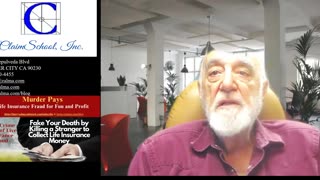 13:02
13:02
Barry Zalma, Inc. on Insurance Law
4 months agoMurder Pays
2641 -
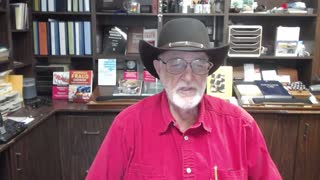 17:36
17:36
Barry Zalma, Inc. on Insurance Law
3 years agoClaims Personnel
110 -
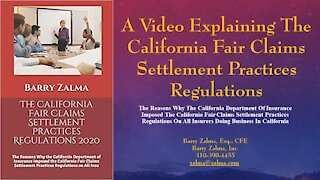 16:07
16:07
Barry Zalma, Inc. on Insurance Law
3 years agoCalifornia fair Claims Settlement Practices Regulations
46 -
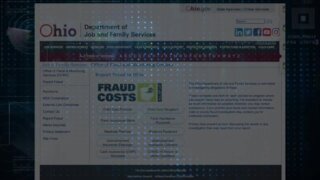 2:45
2:45
WEWS
3 years agoIn-Depth: Fraudulent Ohio unemployment claims spike in 2021
18 -
 2:33
2:33
WTMJMilwaukee
3 years agoSummerfest 2021 shifts dates to September
1 -
 1:56
1:56
WTMJMilwaukee
3 years agoSummerfest 2021 shifts dates to September
10 -
 21:03
21:03
MYLUNCHBREAK CHANNEL PAGE
13 hours agoOld World Minnesota?
4.7K15 -
 5:49:05
5:49:05
Akademiks
19 hours agoDrake Next Move - Whats next?? Did Lil Baby Listen to Me? Diddy and Family Preparing for Indictment?
58K48 -
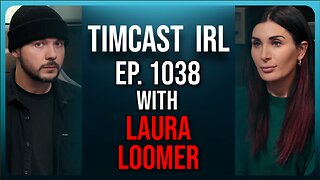 1:56:06
1:56:06
TimcastIRL
1 day agoTrump Raises RECORD $52.8 MILLION In One Day, Bonus Uncensored Show w/Laura Loomer | Timcast IRL
79.9K349 -
 23:19
23:19
Scammer Payback
4 days agoWe Created the First Ever 𝗔𝗡𝗧𝗜-𝗦𝗖𝗔𝗠 Call Center
208K245